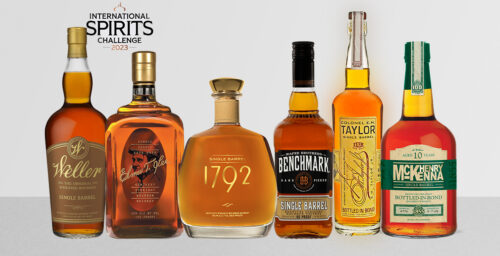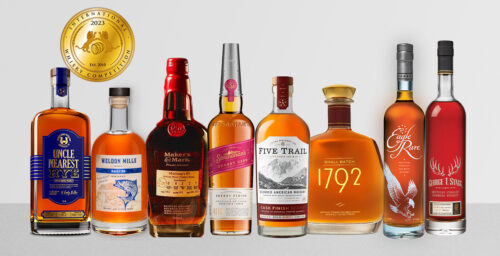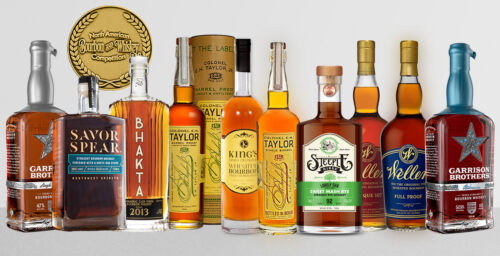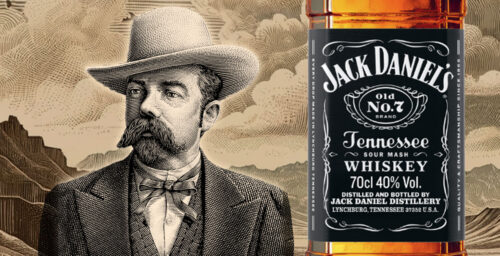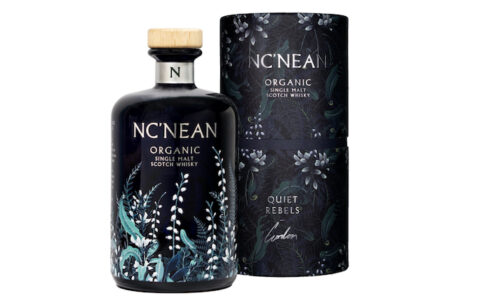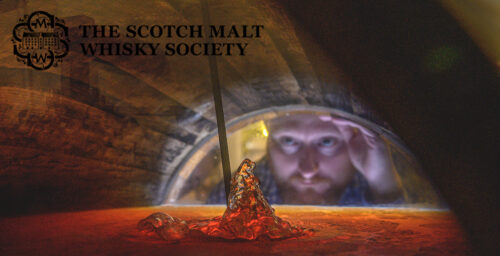Editor’s Note: With the exception of the first image in this story, all photos were provided to The Whiskey Wash by Kirsten Byers, who accompanied our author as he visited Koval.
Sonat & Robert Birnecker drew a big line around their lives in 2008. While starting a family, the two professionals — Sonat was a professor of Jewish Studies and German Cultural History; Robert was the Deputy Press Secretary for the Austrian Embassy — broke out of the mold. Instead of laying out a down payment on a house in Washington D.C., they instead headed to Chicago and bought a 300-liter still, and in the process thus began the story of Koval Distillery, one of America’s most interesting craft whiskey makers.
Sonat, the distillery’s president, said they didn’t kick the idea around for long. “When we make a decision, we are full steam ahead,” she said. But the roots were planted long ago.
Making the Most of It
Robert grew up in Austria among distilling traditions that run three generations deep. “His family and friends are entrenched in the industry the way few in this country are,” Sonat noted to me as I was preparing this story. During that time Robert distilled and made fruit cider — known as “most” in those parts.

Koval now spans three locations on Ravenswood Avenue in Chicago — the initial location housing the store and events such as tours and cocktail classes, with production facilities to the south. The distillery — unassumingly nestled among residences and warehouses — is the kind of place you stumble upon. Being from the neighborhood, I often have.
When I finally stepped inside one 18-degree morning in early March, my photographer and I were shown around the main production location by Becky Schultz — Koval’s informative and easygoing PR liaison.
Pushing the Grains
During our visit I discovered that Koval’s whiskey crafting philosophy is refreshingly simple. “Koval starts with the grain,” Becky told us. “That’s our mission: we’re very grain forward.”
They’ve intrigued the whiskey world with their grains, bottling things such as single barrel editions of 100% Millet, an Asian/African grain. “It’s mostly used for bird seed,” Becky said with an enthusiastic glimmer.
“We wanted to work with some alternative grains and millet was fabulous to mash and distill,” Sonat later added via email, also saying she was drawn to seeing what the “tasty, gluten-free grain… would be like as a whiskey.”

As we sampled the spirits in the late morning, I found that Millet indeed produces a lovely soft spirit. And even the old classics are innovative. Millet, for example, also compliments the corn in Koval’s bourbon, which plays between toasty and smooth. Boasting youthful whiskies, aged no more than four years, a certain softness partners every characteristic. Their intriguing spirits line also includes corn, rye, white rye, millet, oat, spelt, and wheat grains.
“All of our products are distilled very cleanly and only the heart cut is aged in our barrels,” Sonat said.
The result: Koval’s most intensely grainy whiskey has an inviting, youthful mouthfeel that acquaints the drinker with the wood in a mellow way — a golden fibrous quality. So far, everything is single barrel and produced in smaller 30-gallon barrels. I asked if Koval — still a young distillery — was thinking of moving into older whiskies.
“We are always engaged in fun projects. Many collaborations have yet to hit the market.” Sonat said, also noting Koval “would never age longer just to age longer,” like other companies do to smooth out the flavor of the grain “tails,” which “taste and smell like a wet dog by themselves.”
A City, a Country, a Continent
The Birneckers’ life decision has also affected one of the world’s largest cities.
There hadn’t been a distillery in Chicago since the mid-1800s, making Koval the first distillery in this city since Prohibition. Sonat, who grew up in and around Chicago, went beyond merely haranguing the powerful neighborhood aldermen to find a distillery location — she got city laws changed to enable the distillery to sell spirits on site, offer tours and serve at least small cocktails.
“Perhaps most important,” she told me, “was the ability for that [legal] bill to allow retail on site as well as a new kind of license for craft distilleries.” They pressed the bill along “despite a good bit of push back.” Other distilleries have since moved into Chicago, including Rhine Hall and CH Distillery in the burgeoning West Loop.
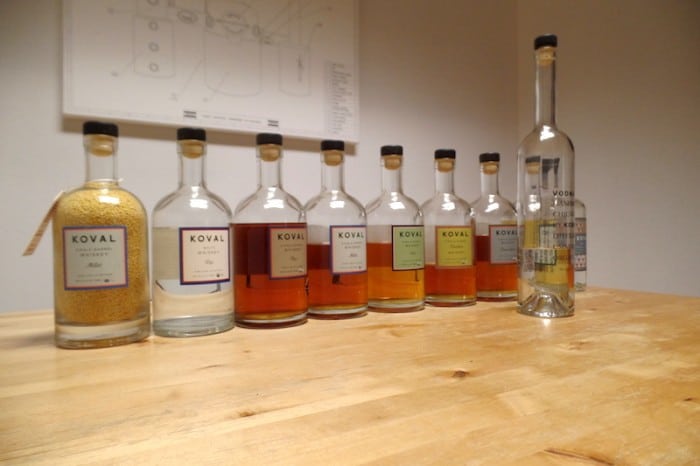
For as whiskey-focused as Koval is (they also produce gin, vodka, and several interesting liqueurs), the first effort was brandy.
“We always thought we would explore many spirits, including whiskey, but we thought that we would focus on brandy,” said Sonat, who was more than happy with Koval’s quick evolution. “Brandy is a lovely spirit but not nearly as popular as whiskey.”
Now, not only has Koval’s proverbial David been slinging its unpredictable spirits at the Goliath whiskey industry, they’re helping set up new distilleries in the U.S. and Canada through their second business — Kothe Distilling Technologies.
Through Kothe, Robert has consulted with and instructed more than 2000 people in the distilling art form, and has assisted in setting up about 80 distilleries, including Journeyman and FEW. While I was visiting Koval in early March, Robert was in Canada installing a still, and Sonat says he’s going to be setting up a distillery in Tasmania soon.
Into the Cave
All this from a place that is still growing.
The production house is full of interesting touches, including a floor-level hole in one wall that Becky simply called “The Cave.” I crouched to peak in at a subset room stacked with barrels, aging away. Every stage of production is performed in the small facility, which now houses a 5,000-liter still. As if peaking from behind a bigger brother, Koval’s initial 300-liter still sits just beyond its successor. It now only makes gin.
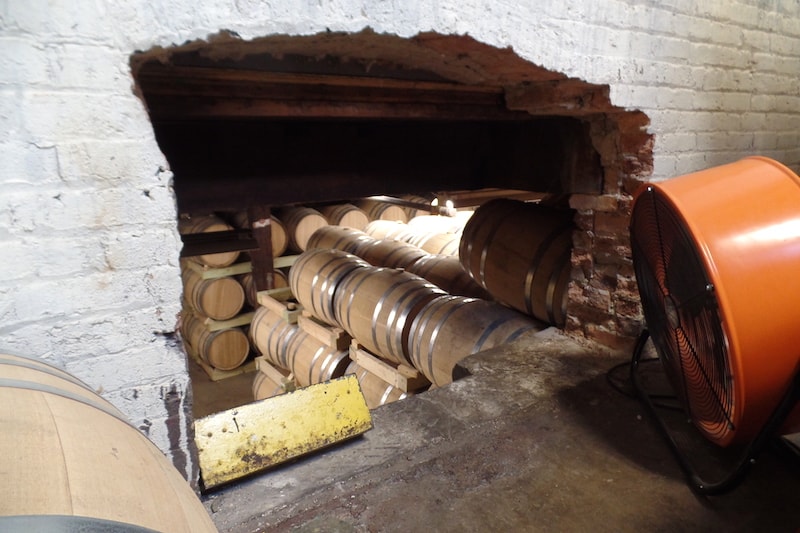
Koval mills and mashes, ferments and distills – and bottles – all in-house.
“We just got the bottling machine two or three months ago,” Becky said casually during the tour. Indeed, they had been hand-bottling everything from when they opened until recently. One characteristic of this new machine is that it has enabled the barrel number to be printed onto the back label, which allows each whiskey to be traced to what grain shipment was used, where the grain came from, when in the season it was harvest, etc.
“Sonat was sad to lose the handwritten barrel number,” said our guide, showing the difference between the printed and handwritten labels. Before, the production crew used to be able to pick up a Koval spirit in the store, examine the handwriting, and say, “Hey, Mike bottled this one.”
Koval is obviously proud of these intimate touches, but is busting with enthusiasm to grow.
Respecting Wood
Be it via distribution, tourism, or equipment and grains, Koval is curious where expansion and new ideas will take them. Koval’s adventure seems to remain finding itself, and just how good it can be at every endeavor.
At the start of our talk, Becky had pointed out the smaller 30-gallon barrels in which their whiskey was aging. At the end, she stopped at another stack of barrels, pushed to the side and still partially wrapped in shipping plastic.
“These are the larger barrels,” she said, that glimmer there again as she looked up at them. Now I’m curious to see where Koval heads next.
I asked Sonat if the distillery would be diving into any different liquors or liqueurs soon. “Yes,” she replied, “but I’ll leave it at that.”

